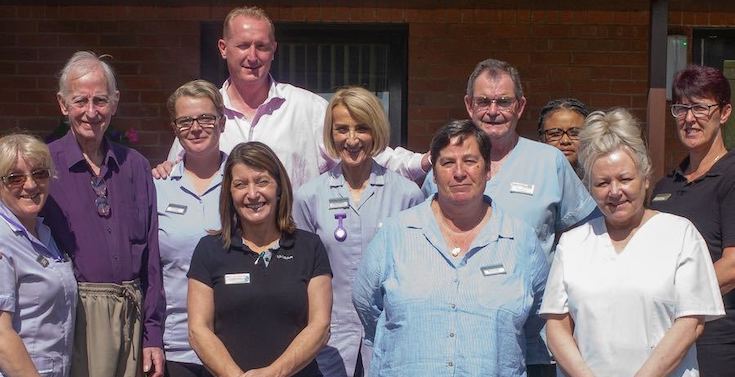What does a Home Manager’s role entail in terms of responsibilities and tasks?
The Home Manager is legally responsible and accountable to ensure the service is running in accordance with the various laws pertaining to running the home – primarily, regulation from the CQC under their inspections framework and equally importantly, for the Health and Safety management of the building and all the safety regulations relating to it.
The CQC regulation framework for good care consists of questions that are asked also called key lines of enquiry (called KLOEs). e.g. “is the service safe, caring effective, well led, responsive”?
The CQC has defined ways of answering these questions and the expected standards in their guidelines. The Home Manager is responsible to the provider within their employment contract to run the service as above and according to the measures of success they outline.
It’s a broad area but the items below cover the most crucial areas for this role:
Financial Controls
The provision of safe, effective residential care can be expensive. It is a fine balancing act to manage the income and expenditure of the home to make a fair return or surplus (charity).
The top three financial controls will always be:
1. Occupancy
How many beds are taken versus budget and what is the split between private paying residents and publicly funded?
2. Hours
The 2nd control is hours – how many are being used versus budget? It needs to flex with occupancy.
3. Agency Staff
The 3rd control is the use of agency workers – if it is being used. Is the Home Manager working toward removing it and have they taken all other actions available, e.g. offered shifts out to everyone, half shifts for several staff etc, before booking it?
Nursing Cover
If they are running a Nursing Home, it is essential to have consistent Nursing cover – this is a number-one priority for the Home Manager, otherwise the service is in breach of their CQC registration, and the residents are at risk of harm.
This means there must always be an actual nurse in the building 24/7, without exception.
Staff Cover
The priority areas for the Home Manager in the day to day running of the home are usually – staff cover, is there enough adequately trained staff on at any one time and rostered (otherwise, the service could be unsafe).
Safeguarding
The next priority is safeguarding - are the safeguarding alerts being used properly? (this is to protect residents from risk of harm / demonstrate openness and rigour in reviewing and acting upon what is found).
CQC Notifications and Inspections
The next priority is CQC notifications – the Home Manager is legally required to send through notifications to the CQC on e-mail, using standard forms, regarding deaths, abuse and other specified matters.
Are they being used consistently and appropriately?
The other major focus for the Home Manager is CQC inspection – is the home rated as at least “good” and is an inspection imminent and are they prepared?
The way to be ready is, firstly, to have an adequate system of audits and quality assurance within the governance of the provider. These need to be used consistently with detailed and accessible record keeping evidenced.
The focus of the Home Manager is to regularly audit key areas of the home to maintain quality assurance in the running of the home and to take action that is evidenced based on the findings of the audits.
The other consideration is to ensure any items raised in the last CQC inspection have been completed. Furthermore, any actions from other quality visits (either internal or external) have been acted upon – showing the service is listening and responding to feedback.
There is a considerable body of good practice which Home Managers need to be aware of and practice in order to get a “good” rating and not be marked down.
Some of this is very specific – e.g.
- Are team meetings held consistently?
- Where are the minutes?
- Are all reference checks done and DBS (security check) before starting
- Can you evidence it?
- Are fridge temps consistently taken – can you evidence it?
There are many small details which need attending to and are considered markers of a good service by the regulator, their absence a consideration of a poorly led service.
Lastly, the regulators will take a holistic view of the service. e.g.
- If a gentleman comes into the service, was their care plan adequate for their needs?
- Are they being well looked after?
- Are they getting adequate fluids?
- Have they seen the GP – can you prove it?
- What diet are they on?
- What activities do they enjoy?
- Can you evidence you’ve provided it?
- If they had a fall, was there a follow though?
- If they banged their head, was a protocol for head injuries followed?
A well-run provider should have most / all of these protocols in place within their policies, procedures and agreed ways of working.
What are the salary expectations for a Home Manager post?
What is the reason it varies so much? The range is surprisingly broad – around £30K to £35K per annum, to £80K. The highest I’ve personally heard is a package of £100K.
"One group I know says £120K plus pay for a Home Manager is possible due to a bonus structure!"
Before you ask who pays the most and how do I get my hands on that £100K salary (perfectly reasonable questions!), it may help to understand why this is such a broad range.
There are many inter-related points that push or affect salaries. These include resident fees, private / publicly funded split of beds, number of actual beds, specialisms, risks, compliance / CQC rating and Home Manager attrition, company culture, company status - charity or private company status or independent?
Let’s explore a little further… Before we talk what makes up for different salary ranges – one key point to remember is the responsibilities are the same whether you are paid £28K or £120K.
The legal responsibilities are exactly the same. However, there will often be an implied level of expectation around skills and execution of strategies at different salary ranges.
At the starter end of Home Manager salaries (£28K - £35K) can be smaller domiciliary care providers, 30 – 60 unit assisted living communities, smaller homes 5 – 35 beds. These may include more socially funded residents, rather than private fee payers.
This is sometimes due to the level of funding they receive and small profit margins which will put the salary ranges at a certain level. Similar size homes will have similar cost / price dynamics and therefore that sets the salary at that range.
Also there is an element to salary around the levels of specific skills – the deeper level of skills needed, the more structure is needed, more cost and more fees, which impacts salary levels.
Mid range for Home Manager salaries (£35K to £45K) can be midsized homes – 30 – 50 bed for corporate or independents. Sometimes there is a bonus based on occupancy – on hitting certain occupancy levels e.g. if you have 50 beds and the provider wants an average occupancy rate of 95% for the month, that will an average occupancy of 47.5 beds occupied per month.
This means some days it needs to be 49 to 50, some days it may go down to 45 as people leave, so a high average can be hard to achieve. The rule of thumb for good Home Managers is aim for the bonus but don’t count on it as they are factors out of your control which may not allow you to achieve it.
As the Registered Manager, the most important thing is the safety of the home, the quality of care and maintaining a good reputation by upholding the highest standards. Don’t be tempted to drop your standards to hit a target. Your integrity and reputation are everything in this line of work!
High end range for salaries (£46K - £75K basic plus bonus).
Mid point is many larger older peoples services average 50 to 80 beds averaging with a median of £50K - £55K give or take, depending on whether it is mainly private payers, a private company – more funding, higher customer service level of expectations can mean a higher set of leadership skills required in the Home Manager or perhaps charity run, often with a higher proportion of socially funded beds and therefore less fee income means less money to pay salaries.
Generally Nursing Home beds are more expensive than residential only beds.
"Often Nursing Homes can have higher Home Manager salaries than residential homes. Generally Nursing Home beds are more expensive than residential only beds."
There are exceptions to all, this is a broad generalisation. Other factors can be – struggling homes with a poor CQC rating may pay more as the home is struggling and there may be some risk to the new Home Manager.
If several Home Managers have left, it can put the salary up as well for the same reason. Large homes have larger teams. You need to be a strong, robust individual to credibly run a team of 100+ staff.
Also, large Nursing Homes with serious clinical problems may need a very experienced clinical manager and trouble-shooter – often coming with 20 – 30 years experience.
These individuals are in short supply, will often not leave their current home, so it raises the salaries further. The key thing is to find out the values of the owner / operations director / regional director.
Top Tip When Looking for a Home Manager Job:
"Find out how the owner of the care home support their managers. Get a feel for the ethos and decide whether it is a good fit for you based on that. Only accept a role you are confident you can succeed in. Reflect on all you’ve seen and heard and the culture you’ve observed. Above all, trust your instinct!"
How much experience do you need to become a Home Manager?
There is no specific number of years experience required in general – many adverts say between 2-5 years.
"In some geographical areas there is an actual shortage of Home Managers."
Some experienced Home Managers are not willing to commute more than 40 minutes to an hour each way, as working hours can be long.
This can create opportunities for deputies and other professionals to step up to the role.
I think it is helpful to consider the following; Are you confident that you can fulfil the duties of the Registered Manager / Home Manager position and can you back up this confidence with examples of where you have demonstrated you have the necessary skills, judgement and experience to meet these duties?
Are you likely to be competent to fulfil these duties and is it likely that the CQC will give you the registration?
See specific requirements from the Health and Social Care Act:
Health and Social Care Act 2008 (Regulated Activities) Regulations 2014: Regulation 7 The intention of this regulation is to ensure that people who use services have their needs met because the regulated activity is managed by an appropriate person.
This is because providers who comply with the regulations will have a Registered Manager who: Is of good character, is able to properly perform tasks that are intrinsic to their role, has the necessary qualifications, competence, skills and experience to manage the regulated activity.
Has supplied them with documents that confirm their suitability. The levels of rigour at the CQC interview process for registration are fairly high. In some instances, if a Home Manager has been previously registered, the interview may be less stringent.
The first time a Home Manager gets confirmed as a Registered Manager is a career milestone and needs to be prepared for carefully and taken seriously and celebrated!
The interviewer is simply assessing someone against the brief above and will ask as many questions as necessary to verify the proposed has this knowledge and aptitude and understanding to fulfil their legal responsibilities.
What qualifications do you need to be Home Manager?
Level 5 Diploma In Leadership Management In Adult Care. It’s a Foundation Degree equivalent. This is the version of the diploma that the CQC are ideally looking for and is the best approved current qualification for Home Managers looking to work in Care Homes.
There are diplomas that have earlier versions of the course, and so you will see various names. We recommend you speak personally to course providers to make sure their course is the right version of the diploma for your career.
For instance, some Level 5 Diplomas are tailored to Adult Care, while others are aimed at people looking to go into Child and Young Adult care - and the guidelines in each course will be targeted to that specialty.
The diploma that is funded by Skillsforcare (funding through service providers) is the Level 5 Diploma in Leadership and Management in Adult Care. What we say is this: if you don’t have strong relevant equivalent level qualifications or higher and you aspire to be a Home Manager, get your Level 5 now!
That’s the headline. But this topic is worthy of some detail. Adverts for Home Managers usually ask for NVQ Level 5 or RMA (Registered Managers Award) or similar. Many say this or “is willing to work toward it.”
But the detail is important. Here’s what we say… There are three take-aways to consider around the question of Home Manager qualifications:
1. RMA (Registered Managers Award) is OK. (If you have the older qualification of the RMA you are exempt from needing to do the Level 5 course).
2. Find out about the Level 5 Diploma now.
3. If you have a Nursing Degree, maybe it won’t be required for some roles… but it is still advisable to get your Level 5 Diploma. So, what does the word “equivalent” mean in job ads for Home Managers?
It’s broad – it could be a Nursing degree or similar. The CQC links this to the Skillsforcare standard which is the Level 5 Diploma in Leadership and Management in Adult Care.
As outlined above, there are other very similar Level 5 diplomas which cover very similar ground, guidelines and topics geared around, say, Child Care and Young Adults - these are also accepted.
In my experience working for corporate level care providers, if you don’t have a Level 5 Diploma, they will put you on it when you join and expect you to complete it within 12 months.
Often they are accepting when this isn’t possible due to work pressures. It is quite hard to do a Level 5 Diploma (Foundation Degree equivalent) when you are busy learning your new job.
I completed my Level 5 in 9 months but the average is a 12 to 18 months. In my experience the CQC is very focussed on you having a Level 5 because on a practical level it means you have been assessed against all the key requirements of the role.
The moral of the story is fairly clear…. If you don’t have strong relevant equivalent level qualifications or higher and you aspire to be a Home Manager, get your Level 5 now!
To find out more information on how someone becomes a Registered Manager with the CQC, as well as the law behind Care Home registration, how CQC registration works & full details on The Level 5 Diploma in Leadership and Management in Adult Care we have an article all about it here.
"If you aspire to be a Home Manager, get your Level 5 now!"














About this contributor
Registered Home Manager
Liam Palmer is the author of 3 books on raising quality standards in care homes through developing leadership skills. In Oct 2020, he published a guide to the Home Manager role called "So You Want To Be A Care Home Manager?". Liam has been fortunate to work as a Senior Manager across many healthcare brands including a private hospital, a retirement village and medium to large Care Homes in the private sector and 3rd sector. He hosts a podcast "Care Quality - meet the leaders and innovators”.
More by this contributorWant to get involved in the discussion?
Log In Subscribe to comment